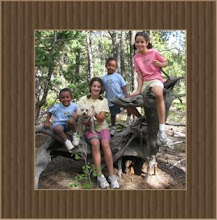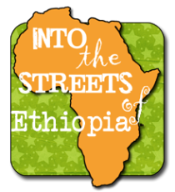The term Third Culture Kid was first used in the 1960's by a woman named Ruth Hill Useem, who pioneered research on this interesting phenomenon. It is a term that refers to children who grow up in a culture other than their own, relate to neither and incorporate them or many in their own identity. I first learned about this when my husband and I were in training for our stint overseas working with the youth of missionaries and other foreign workers. Oddly enough my husband and I both found ourselves finally identified in this term, having lived so long feeling out of sorts with the culture around us we now had an understanding of why. I grew up in one place all my life. Unlike my peers, I was not exposed to much social media nor the main stream culture. I was exposed to good books, church, my private school and missionaries home on furlough. That could hardly make me a TCK. Come on now, really. But, somehow I was. I was such an anomaly in my public High School that others thought I was one of the foreign exchange students with whom I hung out, because I was more comfortable with them. Strange, I know. But, other things can make you a TCK that are not on this list. My husband grew up in a small town near where his mother grew up. Never lived overseas. His dad is an immigrant from a culture which is the antithesis of America. His parents met while his mom was a teacher and aid worker over seas. My husband grew up in a third culture right here in rural America, where he did not fit at all. He fit even less when he went to the city for college. There you have it, a different kind of TCK. If you have adopted children internationally who are older, you know they actually experienced life and remember it and it has shaped them.......... you have a TCK on your hands and it might be a good idea to look into what that is and what they may be experiencing in life. Here are some resources for you.
I found these things several places on line so thought I would include them here. Most of them refer to children growing up over seas. Such as a Caucasian American child growing up in Ethiopia. But, what about an Ethiopian child growing up in Caucasian America, maybe this is how they will feel when they are bigger.
You know you are a TCK if:
- “Where are you from?” has more than one reasonable answer.
- You’ve said that you’re from foreign country X, and (if you live in America) your audience has asked you which US state X is in.
- You flew before you could walk.
- You speak two languages, but can’t spell in either.
- You feel odd being in the ethnic majority.
- You have three passports.
- You have a passport but no driver’s license.
- You go into culture shock upon returning to your “home” country.- Your life story uses the phrase “Then we moved to…” three (or four, or five…) times.
- You wince when people mispronounce foreign words.
- You don’t know whether to write the date as day/month/year, month/day/year, or some variation thereof.
- The best word for something is the word you learned first, regardless of the language.
- You get confused because US money isn’t colour-coded.
- You think VISA is a document that’s stamped in your passport, not a plastic card you carry in your wallet.
- You own personal appliances with 3 types of plugs, know the difference between 110 and 220 volts, 50 and 60 cycle current, and realize that a trasnsformer isn’t always enough to make your appliances work.
- You fried a number of appliances during the learning process.
- You think the Pledge of Allegiance might possibly begin with “Four-score and seven years ago….”- Half of your phone calls are unintelligible to those around you.
- You believe vehemently that football is played with a round, spotted ball.
- You consider a city 500 miles away “very close.”
- You get homesick reading National Geographic.
- You cruise the Internet looking for fonts that can support foreign alphabets.
- You think in the metric system and Celsius.
- You may have learned to think in feet and miles as well, after a few years of living (and driving) in the US. (But not Fahrenheit. You will *never* learn to think in Fahrenheit).
- You haggle with the checkout clerk for a lower price.
- Your minor is a foreign language you already speak.- When asked a question in a certain language, you’ve absentmindedly respond in a different one.
- You miss the subtitles when you see the latest movie.
- You’ve gotten out of school because of monsoons, bomb threats, and/or popular demonstrations.
- You speak with authority on the subject of airline travel.
- You have frequent flyer accounts on multiple airlines.
- You constantly want to use said frequent flyer accounts to travel to new places.
- You know how to pack.
- You have the urge to move to a new country every couple of years.
- The thought of sending your (hypothetical) kids to public school scares you, while the thought of letting them fly alone doesn’t at all.
- You think that high school reunions are all but impossible.
- You have friends from 29 different countries.
- You sort your friends by continent.
- You have a time zone map next to your telephone.
- You realize what a small world it is, after all.
- You’ve said that you’re from foreign country X, and (if you live in America) your audience has asked you which US state X is in.
- You flew before you could walk.
- You speak two languages, but can’t spell in either.
- You feel odd being in the ethnic majority.
- You have three passports.
- You have a passport but no driver’s license.
- You go into culture shock upon returning to your “home” country.- Your life story uses the phrase “Then we moved to…” three (or four, or five…) times.
- You wince when people mispronounce foreign words.
- You don’t know whether to write the date as day/month/year, month/day/year, or some variation thereof.
- The best word for something is the word you learned first, regardless of the language.
- You get confused because US money isn’t colour-coded.
- You think VISA is a document that’s stamped in your passport, not a plastic card you carry in your wallet.
- You own personal appliances with 3 types of plugs, know the difference between 110 and 220 volts, 50 and 60 cycle current, and realize that a trasnsformer isn’t always enough to make your appliances work.
- You fried a number of appliances during the learning process.
- You think the Pledge of Allegiance might possibly begin with “Four-score and seven years ago….”- Half of your phone calls are unintelligible to those around you.
- You believe vehemently that football is played with a round, spotted ball.
- You consider a city 500 miles away “very close.”
- You get homesick reading National Geographic.
- You cruise the Internet looking for fonts that can support foreign alphabets.
- You think in the metric system and Celsius.
- You may have learned to think in feet and miles as well, after a few years of living (and driving) in the US. (But not Fahrenheit. You will *never* learn to think in Fahrenheit).
- You haggle with the checkout clerk for a lower price.
- Your minor is a foreign language you already speak.- When asked a question in a certain language, you’ve absentmindedly respond in a different one.
- You miss the subtitles when you see the latest movie.
- You’ve gotten out of school because of monsoons, bomb threats, and/or popular demonstrations.
- You speak with authority on the subject of airline travel.
- You have frequent flyer accounts on multiple airlines.
- You constantly want to use said frequent flyer accounts to travel to new places.
- You know how to pack.
- You have the urge to move to a new country every couple of years.
- The thought of sending your (hypothetical) kids to public school scares you, while the thought of letting them fly alone doesn’t at all.
- You think that high school reunions are all but impossible.
- You have friends from 29 different countries.
- You sort your friends by continent.
- You have a time zone map next to your telephone.
- You realize what a small world it is, after all.
Sociologist Ruth Hill Useem coined the term "Third Culture Kids" after spending a year on two separate occasions in India with her three children, in the early fifties. Initially they used the term "third culture" to refer to the process of learning how to relate to another culture; in time they started to refer to children who accompany their parents into a different culture as "Third Culture Kids." Useem used the term "Third Culture Kids" because TCKs integrate aspects of their birth culture (the first culture) and the new culture (the second culture), creating a unique "third culture".
Military/ARMY BRATS
Military brats, primarily from the United States, are the most mobile of TCKs but generally spend only a few years abroad, and sometimes none at all. Approximately 41% of military brats spend less than 5 years in foreign countries. They are the least likely TCKs to develop connections with the locals. Because military bases aim for self-sufficiency, military brats tend to be exposed the least to the local culture. Also, because of the self-sufficiency of military bases and the distinctiveness of military culture, even those military brats who never lived abroad can be isolated to some degree from the civilian culture of their "home" country.
While parents of military brats had the lowest level of education of the five categories, approximately 36% of USA military brat TCK families have at least one parent with an advanced degree. This is significantly higher than the general population.
Non-military government
Nonmilitary government TCKs are the most likely to have extended experiences in foreign countries for extended periods. 44% have lived in at least four countries. 44% will also have spent at least 10 years outside of their passport country. Their involvement with locals and others from their passport country depends on the role of the parent. Some may grow up moving from country to country in the diplomatic corps while others may live their lives near military bases.
Religious / Missionary Kids
Religious / Missionary Kids
Missionary Kids (MKs) typically spend the most time overseas in one country. 85% of MKs spend more than 10 years in foreign countries and 72% lived in only one foreign country. MKs generally have the most interaction with the local populace and the least interaction with people from their passport country. They are the most likely to integrate themselves into the local culture. 83% of missionary kids have at least one parent with an advanced degree.
Business kids
Business families also spend a great deal of time in foreign countries. 63% of business TCK's have lived in foreign countries at least 10 years but are more likely than MKs to live in multiple countries. Business TCKs will have a fairly high interaction with their host nationals and with others from their passport country.
Other
The "Other" category includes anybody who does not fit one the above descriptions. They include: intergovernmental agencies, educators, international non-governmental organizations, media, etc. This group typically has spent the least amount of time in foreign countries (42% are abroad for 1-2 years and 70% for less than 5.) Again their involvement with local people and culture can vary greatly. The parents of "Others" are the most likely of TCKs to have parents with an advanced degree (89% of families have an advanced degree.)
*My note: other can include international families and internationally adopted children.
What are the Characteristics of TCKs?
There are different characteristics that impact the typical Third Culture Kid:
There are different characteristics that impact the typical Third Culture Kid:
- TCKs are 4 times as likely as non-TCKs to earn a bachelor's degree (81% vs 21%)
- 40% earn an advanced degree (as compared to 5% of the non-TCK population.)
- 45% of TCKs attended 3 universities before earning a degree.
- 44% earned undergraduate degree after the age of 22.
- Educators, medicine, professional positions, and self employment are the most common professions for TCKs.
- TCKs are unlikely to work for big business, government, or follow their parents' career choices. "One won't find many TCKs in large corporations. Nor are there many in government ... they have not followed in parental footsteps".
- 90% feel "out of sync" with their peers.
- 90% report feeling as if they understand other cultures/peoples better than the average American.
- 80% believe they can get along with anybody.
- Divorce rates among TCKs are lower than the general population, but they marry older (25+).
- Military brats, however, tend to marry earlier.
- Linguistically adept (not as true for military ATCKs.)
- A study whose subjects were all "career military brats"—those who had a parent in the military from birth through high school—shows that brats are linguistically adept.
- Teenage TCKs are more mature than non-TCKs, but ironically take longer to "grow up" in their 20s.
- More welcoming of others into their community.
- Lack a sense of "where home is" but often nationalistic.
- Some studies show a desire to "settle down" others a "restlessness to move".
- Depression and suicide are more prominent among TCK's.
- http://en.wikipedia.org/wiki/Third_culture_kid
- http://www.tckid.com/what-is-a-tck.html
- http://www.state.gov/m/dghr/flo/c21995.htm
- http://3rdculturekids.blogspot.com/
- TCK World Official Home of Dr. Hill Useem's research, sociologist who coined the term "Third Culture Kid" http://www.tckworld.com/tckdefine.html
- Third Culture Kids on ABC News An interview with Ruth Van Reken, Brice Royer, and Daniela Tudor from TCKID
- Global Families | Third Culture Kids Recent research and current resources
The Story of Mr. Roundhead











































No comments:
Post a Comment
Please leave a comment: